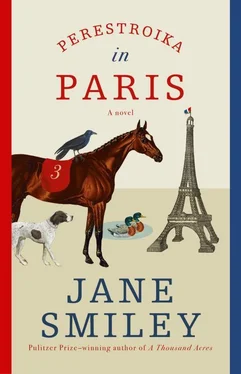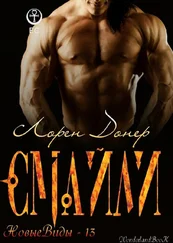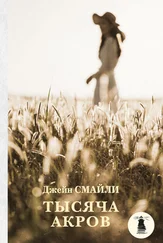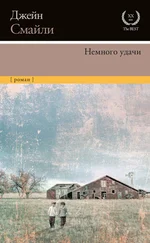
RAOUL WAS SITTING on one of the struts of the great Tour, useless, as far as Raoul could see, to humans, but a wonderful convenience for Aves. A few young Corvi were watching him. He performed several ownership rituals—I know everything about this neighborhood, come to me for advice, I won’t kick you out if you are properly respectful, only respect, that is all I demand, no, request—best not to insert the “demand” gesture. The group of ravens watched him, looked away. Raoul walked around the leg of the Tour that was nearest to him, dropped down into the shadows, and flew away quietly. Freedom was what he cared about, like most worldly creatures of his degree of maturity, but youth cared about power, always had, always would. He crossed the Avenue de Suffren, then the river. He made a tour of the Place du Trocadéro, circled the chilled and motionless statue of the man on the horse two times, flew rather close to a couple of windows just to look, but he didn’t see Frida inside or outside any shop. When he regained his territory above the head of Benjamin Franklin, he nestled there in a sort of resigned comfort—his morning sojourn had taken more out of him than he’d expected it to. He had seen himself in the window of the Pâtisserie Carette, a bit ragged, looking a bit blown-out. There was grooming to be done, and he had only himself to do it.

WHEN THE SUN WAS well up and she knew that it would be blazing through the great window that overlooked the grand salon on the southeast, Madame de Mornay hoisted herself to her feet and made her way to her lavatory, then to her door. She was too blind to really see the sun, except as a welcome brightness, but she could feel it on her arms and her head. She had lived in these rooms in this house for so long that she knew just how the warmth progressed about the place, and just where to go to receive some.
She walked slowly and a bit noisily, but Étienne, who was upstairs looking for a book about horseback riding, did not happen to hear her. She opened the door of her chamber, moved across the hallway, paused, stepped, paused, stepped, paused, stepped again, until she could reach for the back of one of the wing chairs and move, chair by table by windowsill, to her favorite spot. When she got there, she groaned and sat down with a sigh. She was about three meters from Paras, who was standing by the fireplace, sniffing the very old logs piled on the grate.
Paras had eaten her breakfast and gone outside already—horses are early risers.
Over on the desk, Kurt was watching Paras and Madame. He could not help making a squeak or two, but he had no fear of Madame—one of his favorite tunnels opened into her chamber, and he was used to clearing away any crumbs that Madame might drop when she took tea and biscuits in bed.
“Ooh,” said Madame, “good heavens! I am hungry!” She yawned, covering her mouth.
Very slowly, Paras eased toward her, her nose extended. She was as silent as she could be. She stood near Madame, and sniffed her all over, her nose maybe ten centimeters from Madame’s face, her shoulder, her lap, her knees, her feet. Madame was very small: her feet hardly touched the floor when she sat up straight in her wing chair. Madame shifted, then raised her hands, smoothed her hair, tightened her bun. Her hand went past Paras’s cheek but did not touch it. If she had, she would have been surprised, but, perhaps, not afraid—Madame was used to unusual events. Madame thought a soft-boiled egg would be quite lovely, with a bit of bread and some raspberry jam. She called out, “Étienne, where are you?” Perhaps Madame did get a little whiff of Paras, but perhaps not. She had smoked heavily for years—Gauloises. Or maybe she got a whiff and simply did not believe her nose.
Paras thought that Madame had quite an interesting and, you might say, well-preserved fragrance. There was a hint of floral and a hint of dust and a hint, but only a hint, of human. Madame picked up her knitting from the side table. Paras gently sniffed the knitting.
From the landing, Étienne stared down at them: his great-grandmama so tiny, poised in her chair, feeling her knitting with the tips of her fingers; the horse, so huge, her ears pricked, almost but not quite touching his great-grandmama. He coughed. Paras turned her head, but only her head, her ears still pricked. She gently switched her tail. Étienne ran down the stairs and touched Madame de Mornay on the shoulder.
The old woman smiled and said, “Ah, little one! How are you?”
Étienne put his arm around his great-grandmama’s shoulders, and received a light kiss on the cheek. In the meantime, Paras pivoted gracefully on her hind leg. Her hooves clip-clopped on the hardwood floor, but Madame felt them only as a little rumbling that reminded her of the Métro, and she didn’t think anything of it. She was proud of the Métro—very forward-looking and typically Parisian for its day.
Étienne went to the door and opened it wide. Paras walked out into the sunshine. Étienne closed the door. He thought, sadly, that he might never see the horse—his horse—again, since the gate was open. But he went to Madame, took her hand to show that he was with her, and helped her into the cuisine. He had to make sure that she circumvented a pile beside the window, but it was a small pile, perfect for the raspberry patch.
Once they had left, Kurt zipped across the floor of the grand salon as fast as he could (which was very fast), clambered onto a chair and then onto the windowsill. He wished he had managed to get out the door with the horse—she was still out there—but he saw with despair that he had lost his chance. He was a buck, he needed a doe!
Outside, Paras enjoyed the sunlight and a warm breeze. She went over to the partially open gate and looked out. The street was darkly wet. The snow had melted and was flowing into the drains. The humans who were out were, as usual, looking downward, minding their own business, thoroughly convinced that they knew all about everything having to do with their world. Dogs noticed her—tiny little dogs in tiny little blankets trotting by on the slenderest of lead ropes—but none of them barked, and so their humans hurried on. One, a Jack Russell terrier about the same size as Assassin, looked at her steadily, then paused at Madame’s shrubbery and lifted his leg. Paras snorted in derision at this property claim, but the dog ignored her, scratched a little in the wet dirt, and allowed himself to be pulled away by his mistress, who was reading the paper as she walked.
Paras had found her night indoors very restful—perhaps she had caught up on months and months of lost sleep. A grand salon was much better in its way than a stall—more things to look at and explore, quieter, none of that constant sense of the other horses. In order to avoid having to make up her mind about going out through the gate, Paras explored the courtyard more carefully than she had the day before. The sunlight was now pouring in from above, and the snow had turned to slush. The riotous shrubbery covering the fences was brilliant dark green. Paras saw that there was a much larger entrance to the house, up many steps, very grand, like the entrance to a great stud barn. There was another gate, too, across from that entrance, also grand, with much curling brass-work. Paras saw that, just as the old lady had a room, and Étienne had a room, she could have a room—this nicely protected but airy spot, open to the sky, closed to the view of passersby, not quite as luxurious as the grand salon, but perhaps more suited to her needs, and, perhaps, a place that Frida would dare to enter. She walked about, looking here and there, sniffing this and that, listening through the growth to the humans and animals walking along the allée.
Читать дальше











